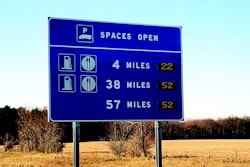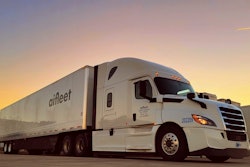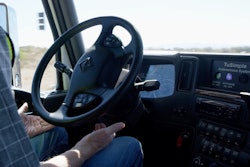AT&T and Verizon began rollout of their 5G wireless services Jan. 19. The deployment of the 5G network, which offers faster speeds and broader range, was initially slated for Dec. 5, but the companies in November agreed to postpone until Jan. 5.
At the urging of Transportation Secretary Pete Buttigieg, and pressure from Committee on Transportation and Infrastructure Chair Peter DeFazio (D-Oregon) and the aviation industry, the two carriers committed to further delaying deployment of 5G broadband by an additional two weeks to Jan. 19.
At issue is the Federal Aviation Administration's concern over potential 5G interference with airplane safety systems, particularly equipment used by flight crews to land in bad weather – worries that the Federal Communications Commission (FCC) has largely debunked. FCC Commissioner Brendan Carr in a letter to Buttigieg dated Jan. 1 wrote that requests for delay were "not backed up by the science, engineering, or law. Indeed, your arguments are predicated on the claim that there are unresolved concerns about harmful interference from C-Band operations into radio altimeters. That is not correct."
Carr further penned that the FCC – the agency charged with oversight of the spectrum that delivers 5G service – "resolved these issues all the way back in March 2020."
As part of the deal to delay 5G rollout until mid-January, the two carriers also agreed to an initial 5G rollout at a lower power than originally planned and to further reduce power around 50 major airports until mid-year, giving regulators more time to study their claims of interference. In exchange, the FAA said it would not seek additional delay.
This week the FAA said it cleared an estimated 45% of the U.S. commercial fleet to perform low-visibility landings at many of the airports where 5G C-band will be deployed on Jan. 19, but "even with these new approvals, flights at some airports may still be affected," the agency warned. "The FAA also continues to work with manufacturers to understand how radar altimeter data is used in other flight control systems."
While the FAA has agreed to not pursue further 5G delays, U.S. airlines have banded together and dug in. The airline industry this week warned of widespread cancelations and diverted flights if the rollout goes on as planned. In response, both AT&T and Verizon said Tuesday they would further limit 5G capabilities around airports Jan. 19, but 5G deployment would go on as scheduled.
"As the nation’s leading wireless provider, we have voluntarily decided to limit our 5G network around airports," Verizon said via statement. "The Federal Aviation Administration (FAA) and our nation’s airlines have not been able to fully resolve navigating 5G around airports, despite it being safe and fully operational in more than 40 other countries."
Both AT&T and Verizon already offer 5G services in select markets.
Mobile carriers, beginning in February with AT&T, will shut down 3G networks to make room for more advanced networks, such as 5G. As a result, any 3G devices – cell phones, ELDs, telematics, in-cab cameras, etc. – will no longer be able to upload data to the cloud.












